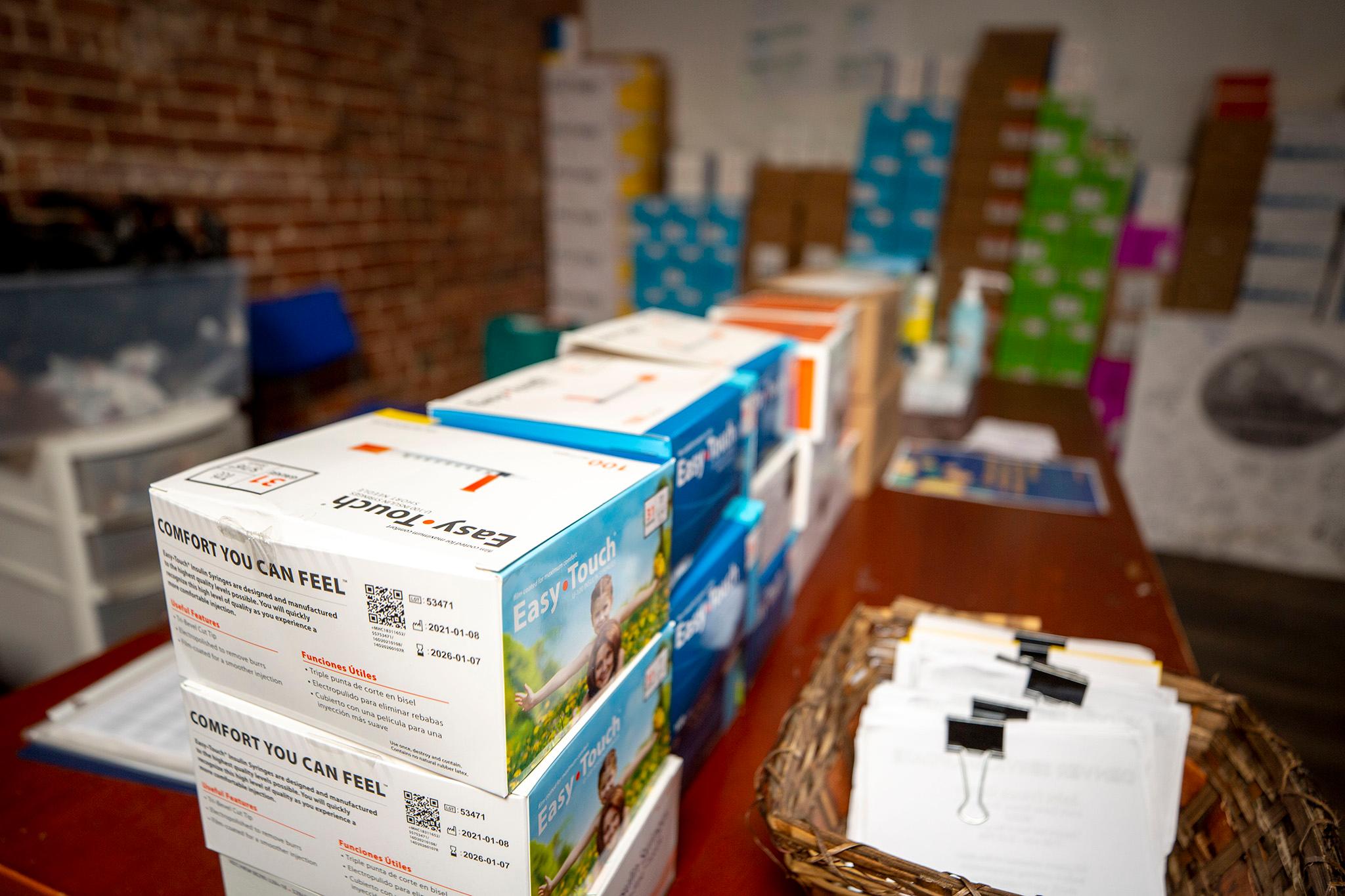Updated 7:29 p.m.
Denver Mayor Mike Johnston has vetoed a bill that would have allowed for more needle exchange sites throughout the city.
The changes proposed by Bill 24-1791 were simple: Remove the limit to how many needle exchange programs could operate, and allow the sites to open within 1,000 feet of schools and day cares without the need for exemptions.
Denver City Council voted 8-5 Monday to pass the ordinance, conceived by sponsors Stacie Gilmore, Serena Gonzalez-Gutierrez and Sarah Parady. The changes were recommended by the Denver Department of Public Health and Environment.
But Johnston disagreed with the bill.
“Ordinance 24-1791 is the wrong solution at the wrong time,” he wrote in a letter to city council.
Johnston said he supports needle exchange sites, but disagrees with the fundamental ideas of the bill.
“First it would allow for an unlimited number of needle exchange programs across Denver,” he wrote. “Second, there is no reason to eliminate common sense setbacks for regulated entities, including needle exchange programs.”
Despite his veto, Johnston said he remains committed to preventing drug overdose deaths, citing his administration’s Roads to Recovery program.
City Council can overrule his veto if nine members vote to do so. Based on Monday’s outcome, that would require one council member to flip their vote.
The bill split city council during its Monday session.
The five city councilmembers who voted against the bill also showed their support for the existence of needle exchange programs, but disagreed with removing the rule that banned sites within 1,000 feet of schools.
Council members Kevin Flynn, Amanda Sawyer, Darrell Watson, Diana Romero Campbell and Flor Alvidrez all voted against the ordinance.
Councilwoman Parady, who sponsored the bill, said she was disappointed by Johnston’s decision.
“His decision runs counter to the recommendations in a lengthy syringe access study published just last fall by the Denver Department of Public Health and Environment, and leaves us without the ability to add more sites for proper disposal of dirty needles,” she said in a text message.
Denver's existing needle exchanges are all actually within 1,000 feet of schools.
Denver currently has three existing syringe exchange programs, places where drug users can exchange dirty needles for clean ones, as well as access addiction support, behavioral health care information and STI testing.
The three that are currently allowed to operate already do so within 1,000 feet of schools or daycare facilities, as they qualify for exemptions to the rule.
How did harm reduction advocates react to the veto?
Johnston’s decision to veto earned pushback from harm respond advocates, like Lisa Raville, the executive director of the Harm Reduction Action Center, one of the three needle exchange sites in the city.
“This decision hits hardest those already struggling to survive amidst stigma, systemic barriers, and the most dangerous drug supply in history,” Raville said.
The Centers for Disease Control say that needle exchange sites are “proven and effective community-based prevention programs.”
Needle exchange sites are not supervised injection sites, which are not legal in Denver or the state.











